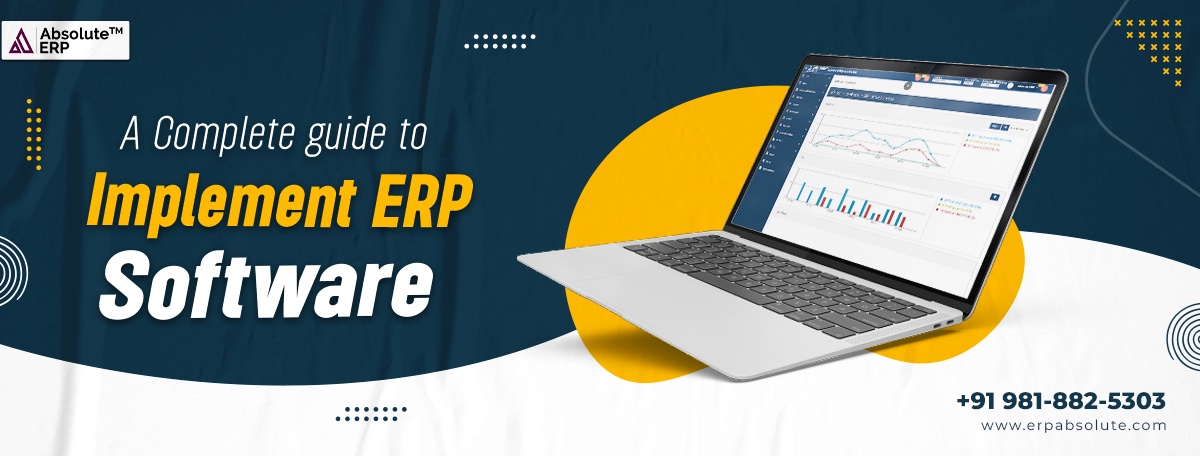Do you own a small, medium, or large size business? Running a business comes with lots of challenges including production issues, operational difficulties, and other business struggles. To tackle these business problems, many entrepreneurs like you are opting for ERP software with a customizable feature. It offers a centralized platform for real-time information sharing across the entire organization, enhancing visibility and collaboration. ERP helps to integrate various processes of the businesses to empower data-driven decision-making. The automation system helps to eliminate manual work and reduce human errors that may impact business functionalities.
Many companies have benefited by implementing ERP solutions into their business premises. However, implementing it accurately is also crucial. If you are willing to experience the same advantages in your organization then you must know the right implementation process for a successful business. Thus, we are here with a complete guide to implementing ERP software in your business.
1. Analyze your current data: The first step in implementing a successful ERP is to analyze and assess your current systems. Identify the areas where you think improvement is necessary in your business. This assessment helps you to understand the actual state of your business and identify the inefficiencies and bottlenecks.
2. Clarify the scope and objectives: Defining your business scope and objectives is the second step in implementing ERP software successfully. It helps you to understand what tasks and activities your ERP is responsible for handling. A clear definition of scope and objectives helps you to determine which functions and processes will be automated. This helps to create a clear roadmap to install successful ERP.
3. Choose an ERP system: The third step comes with the critical decision of choosing a suitable ERP perfect for your business functionalities. You need to research and evaluate different ERP solutions available that align with your business requirements. In this step, you need to determine whether you need an integrated ERP or a standalone system. This can be identified while analyzing your organizational requirements.
4. Prepare and transfer data: After choosing your best ERP, you need to prepare it to configure it according to your business needs. After configuring, format your existing data for compatibility with the new system. In this step, you need to access, prepare, and transform the existing data in a new ERP format to make it work.
5. Test the software: After you are done with transferring the data, now it is time to test the software after transferring the old data. This step will ensure the software is properly working and all the business functionalities are accurately working. To test the system, you need to check all the system applications and processes while verifying the migrated data.
6. Get training done: The sixth step nee employee training for smooth functioning. You need to ensure that all the employees receive adequate ERP training to understand how the system works and how to use it. You can use different training methods according to your business needs such as on-the-job, off-the-job, one-on-one sessions, and others.
7. Provide ongoing maintenance and support: Once you are done with all the steps, it is crucial to get ongoing support and maintenance. In this last step, you are bound to perform regular maintenance checks, ensuring upgrading needs, and troubleshooting. Make sure you have experienced professionals for this step.
EndNote
No doubt, ERP implementation is a complex process. However, once you successfully install ERP software into your business, you are all set to elevate your business to new heights.
I hope you will find this blog helpful in implementing ERP successfully in your organization.


No comments yet